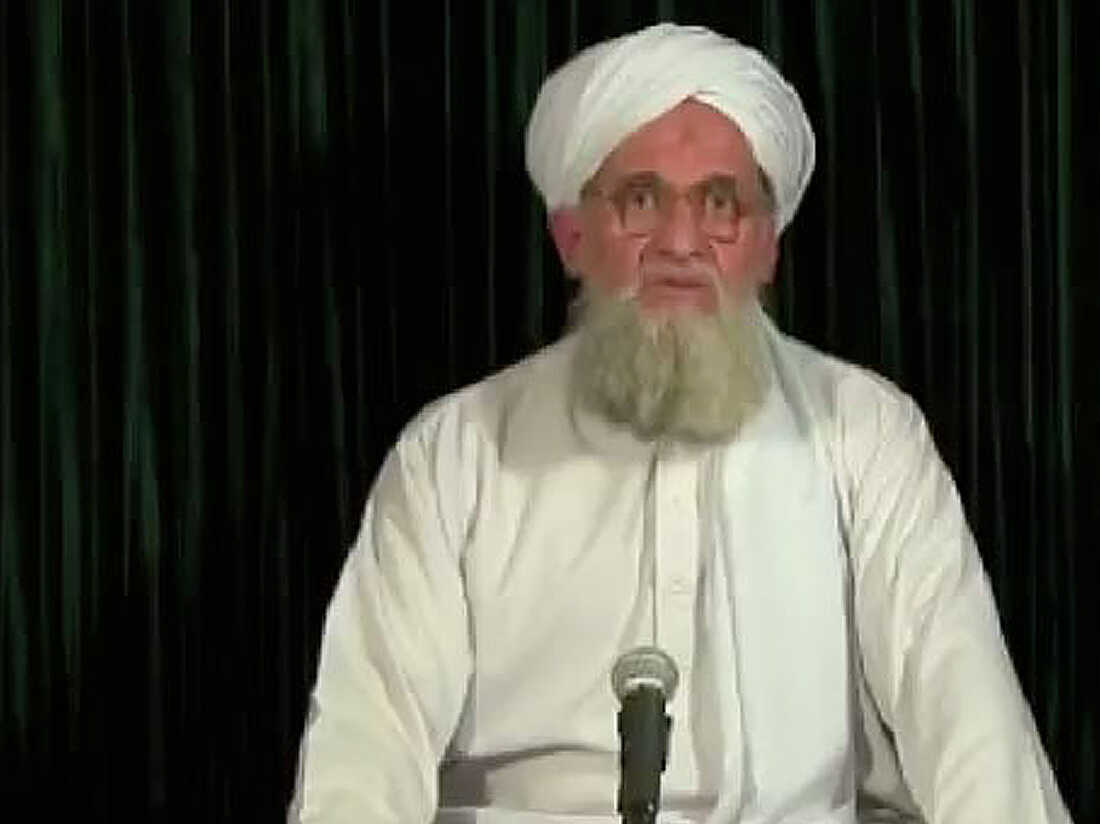
Ayman al-Zawahiri is shown speaking in this still image taken from IntelCenter on September 10, 2012, at an undisclosed location. Getty Images – IntelCenter/AFP remove caption
switch to caption Getty Images – IntelCenter/AFP
Ayman al-Zawahiri is shown speaking in this still image taken from IntelCenter on September 10, 2012, at an undisclosed location.
Getty Images – IntelCenter/AFP About 40 years ago, when the world’s media recorded Ayman al-ranting Zawahiri’s from a cage at the back of an Egyptian courtroom, it was one of the last occasions the al-Qaida commander was in the spotlight.
He was heard shouting in front of the cameras about the Egyptian jailers’ abuse of him and other captives. He began the group’s chant by saying: “Our faith is Islam. Our faith is Islam.”
In addition to turning Zawahiri against the Egyptian government, his stint in prison there also served as the catalyst for his lifelong animosity for the United States.
This animosity was passed on when al-Zawahiri eventually allied himself with Osama bin Laden, but it came to an end for him on Sunday local time in Afghanistan when a U.S. drone fired two hellfire missiles into a safe house in Kabul, killing him.
Al-Zawahiri served as Osama bin Laden’s assistant during the 9/11 attacks and was “fully involved in the planning,” President Biden said on Monday.
Biden said, mentioning the 1998 bombings of the American embassies in Kenya and Tanzania as well as the 2000 attack on the USS Cole, “For decades he was the brains behind attacks against Americans.”
After bin Laden was killed by American forces in 2011, Biden spoke into depth about al-leadership Zawahiri’s of al-Qaida, including his recent calls for attacks on the United States and its allies.
Al-Zawahiri has a reputation for being abrasive and uncompromising, but Bruce Hoffman, director of the Georgetown University Center for Peace and Security Studies, said in 2011 that he would end up being an even more potent commander than bin Laden.
Hoffman remarked that, in contrast to bin Laden, the individual “had the street cred of having been a dyed-in-the-wool terrorist from the time he was a teenager.” “Yes, he lacks bin Laden’s telegenicity. He isn’t as charismatic as bin Laden. Although he lacks bin Laden’s dulcet voice, he is nevertheless a very influential person in the movement.”
Building a foundation for a larger Islamist movement has become Bin Laden’s slogan. He desired working for a company that could survive without him. And in the ten years following bin Laden’s death, al-Zawahiri has continued it.
Dina Temple-Raston originally published a version of this profile on NPR on May 3, 2011.















